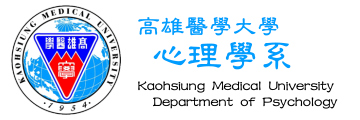The Department of Psychology was officially established on August 1, 1987, pioneering the founding of a psychology department within a medical university. This innovation attracted many young students aspiring to clinical professions, making the cultivation of clinical psychology professionals a hallmark of the department. On August 1, 2012, aligned with the university's development plan, the department became part of the newly established College of Humanities and Social Sciences. Responding to the global rise of positive psychology in recent years, the Center for Positive Psychology was established in 2014. This center systematically integrates internal and external resources, initially focusing on recruiting and training human resources. Through curriculum design and research integration, the department has gradually developed a distinctive focus on applying positive psychology, aiming to cultivate applied and clinical psychology talent.
The department currently has 13 full-time faculty members, including two professors, four associate professors, and seven assistant professors, all holding doctoral degrees. To enrich the learning experience for graduate students in the Clinical Psychology division, our faculty members possess extensive teaching, theoretical, and practical experience. To integrate theory with practice and stimulate students' motivation, our teaching approach combines diverse and dynamic methods, such as film discussions, group dynamics observation, and role-playing, fostering a complementary relationship between theory and practice.
Our faculty’s expertise spans both basic and applied psychology. Collaborating with faculty members from related fields and medical professionals, we offer a wide range of programs, providing students with robust academic and practical training. The department remains committed to advancing the integration of psychological theory and practice, focusing on developing students’ knowledge and skills and their career prospects, thereby nurturing professionals in psychology.
Undergraduate students, in addition to completing required courses, can select electives in various specialized fields based on their interests, including Clinical Psychology, Basic Psychology, Early Intervention, Counseling, Social Psychology, Industrial and Organizational Psychology, and Positive Psychology. The graduate program currently offers divisions in Clinical and Applied Psychology, training professionals who specialize in researching the psychology and behavior of individuals in our society and promoting the physical and mental well-being of the population. Graduates of the department have multiple career pathways, including:
-
Education, Counseling, and Mental Health: Graduates can serve as clinical psychologists in major hospitals' psychiatric, rehabilitation, and neurology departments or work in community mental health centers. They may also pursue public sector roles such as probation or correctional officers.
-
Industrial and Organizational Applications: We train professionals who apply positive psychology in various industries, enabling them to work in human resource management, marketing, business development, or as cross-disciplinary consultants, contributing to corporate well-being.
-
Academic Research or Administrative Assistance: Graduates may take on roles as teaching or research assistants in universities or research institutions.
-
Further Studies: Graduates can pursue further education in psychology or expand into interdisciplinary fields such as management, neuroscience, or criminology.
